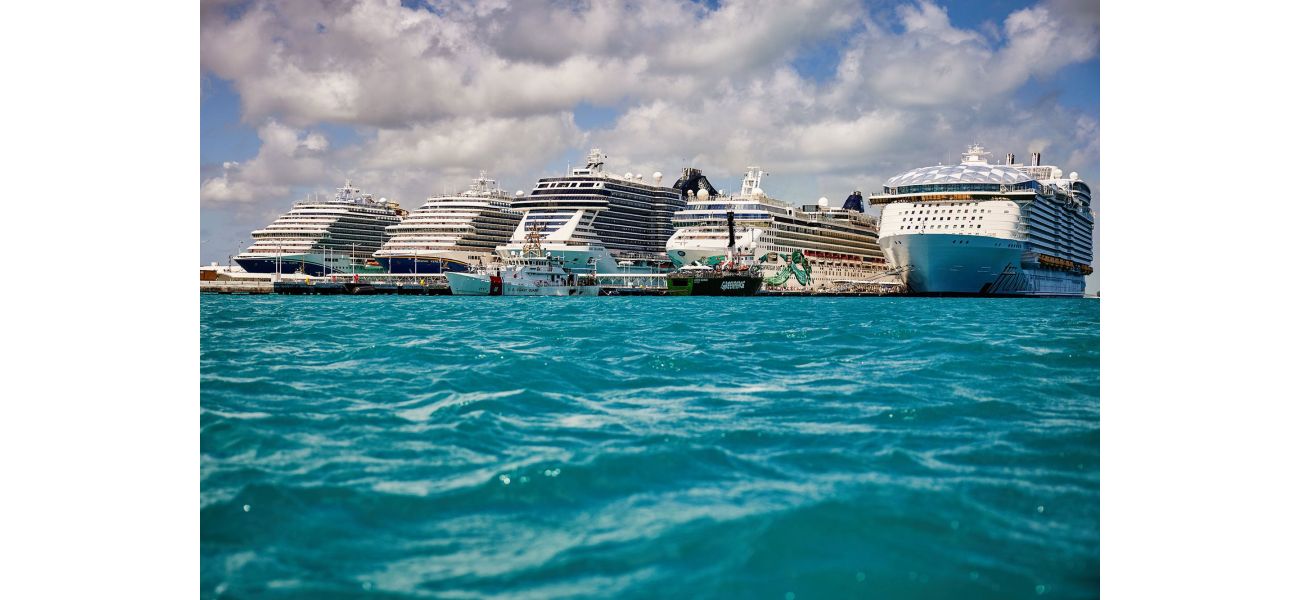Cruise industry facing worst illness rate in 10+ years.
Over the past few years, the restaurant industry has grown significantly and has also experienced an increase in gastroenteritis rates.
January 5th 2025.

The cruise industry has been rapidly growing, with more and more extravagant ships being built and a projected 37.1 million passengers set to embark on cruises in 2025, according to Cruise Lines International Association. However, there is another statistic that is also on the rise and it's not a positive one. Recent data from the US Centres for Disease Control and Prevention shows that 2024 had the highest number of gastrointestinal outbreaks on cruise ships in over a decade.
The majority of these outbreaks were linked to the highly contagious norovirus, which has long been associated with cruise ships due to its ability to spread quickly in close quarters. In fact, in December alone, five cruise ships reported outbreaks of the virus, affecting hundreds of passengers on Cunard Line, Holland America, and Princess Cruises.
Dr. William Schaffner, an infectious disease expert, explains that norovirus is often referred to as the "cruise ship virus" because of its prevalence on these types of vacations. The virus is extremely contagious and can be easily spread through contact with contaminated surfaces or by touching one's mouth after coming into contact with the virus.
Winter months tend to see a higher incidence of norovirus, and this year is no exception. According to Schaffner, the current outbreak is more severe than usual, both on land and at sea, which may explain the spike in cases reported by the CDC in December 2024. However, the cruise industry organization, Cruise Lines International Association, reassures that incidents of illness on board cruise ships are extremely rare.
The CDC also notes that outbreaks on cruise ships are detected and reported more quickly than on land, thanks to strict reporting protocols. Nevertheless, it's important to note that the number of reported outbreaks in 2024 was significantly higher than in previous years, with a total of 16 outbreaks compared to 14 in 2023. It's unclear at this time if this is a trend that will continue in the future.
It's worth mentioning that the CDC only tracks outbreaks on ships that fall under their jurisdiction, which means they must have a US port, a foreign itinerary, and carry more than 13 passengers. This doesn't include every cruise ship in the world, but it does account for a significant portion of the fleet.
To prevent the spread of illness on board, the CDC recommends that passengers who experience symptoms of a stomach bug report it promptly to medical staff and practice good hand hygiene, especially after using the toilet and before eating or drinking. Cruise companies also take measures to control outbreaks, such as quarantining sick passengers and increasing cleaning and disinfection protocols.
However, due to the highly contagious nature of norovirus, these measures may not be entirely effective. Schaffner advises potential cruise passengers to stay home and reschedule their trip if they are feeling unwell, and to pay close attention to hygiene instructions on board, particularly when it comes to hand washing. In this case, soap and water are more effective than hand wipes or sanitizing lotions, as norovirus is not easily affected by alcohol.
As for the future, Schaffner explains that it's difficult to predict if this recent wave of norovirus will continue into 2025 and beyond. He advises individuals to make informed decisions and take necessary precautions to protect themselves and others while on board a cruise ship. In the end, only time will tell how this situation will unfold.
The majority of these outbreaks were linked to the highly contagious norovirus, which has long been associated with cruise ships due to its ability to spread quickly in close quarters. In fact, in December alone, five cruise ships reported outbreaks of the virus, affecting hundreds of passengers on Cunard Line, Holland America, and Princess Cruises.
Dr. William Schaffner, an infectious disease expert, explains that norovirus is often referred to as the "cruise ship virus" because of its prevalence on these types of vacations. The virus is extremely contagious and can be easily spread through contact with contaminated surfaces or by touching one's mouth after coming into contact with the virus.
Winter months tend to see a higher incidence of norovirus, and this year is no exception. According to Schaffner, the current outbreak is more severe than usual, both on land and at sea, which may explain the spike in cases reported by the CDC in December 2024. However, the cruise industry organization, Cruise Lines International Association, reassures that incidents of illness on board cruise ships are extremely rare.
The CDC also notes that outbreaks on cruise ships are detected and reported more quickly than on land, thanks to strict reporting protocols. Nevertheless, it's important to note that the number of reported outbreaks in 2024 was significantly higher than in previous years, with a total of 16 outbreaks compared to 14 in 2023. It's unclear at this time if this is a trend that will continue in the future.
It's worth mentioning that the CDC only tracks outbreaks on ships that fall under their jurisdiction, which means they must have a US port, a foreign itinerary, and carry more than 13 passengers. This doesn't include every cruise ship in the world, but it does account for a significant portion of the fleet.
To prevent the spread of illness on board, the CDC recommends that passengers who experience symptoms of a stomach bug report it promptly to medical staff and practice good hand hygiene, especially after using the toilet and before eating or drinking. Cruise companies also take measures to control outbreaks, such as quarantining sick passengers and increasing cleaning and disinfection protocols.
However, due to the highly contagious nature of norovirus, these measures may not be entirely effective. Schaffner advises potential cruise passengers to stay home and reschedule their trip if they are feeling unwell, and to pay close attention to hygiene instructions on board, particularly when it comes to hand washing. In this case, soap and water are more effective than hand wipes or sanitizing lotions, as norovirus is not easily affected by alcohol.
As for the future, Schaffner explains that it's difficult to predict if this recent wave of norovirus will continue into 2025 and beyond. He advises individuals to make informed decisions and take necessary precautions to protect themselves and others while on board a cruise ship. In the end, only time will tell how this situation will unfold.
[This article has been trending online recently and has been generated with AI. Your feed is customized.]
[Generative AI is experimental.]
0
0
Submit Comment





